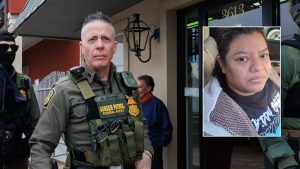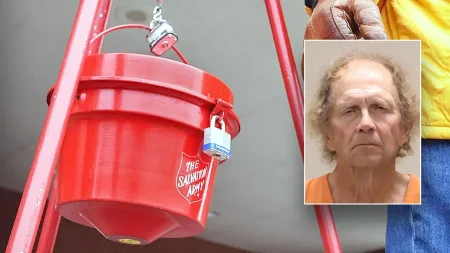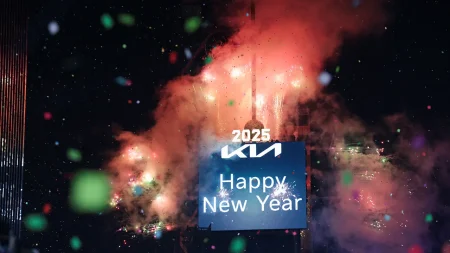Pakistan’s New Government Launches Inquiry Into Political Upheaval That Toppled Previous Administration
In a significant move toward political accountability, Pakistan’s newly formed government has initiated a comprehensive investigation into the tumultuous events that precipitated the dramatic collapse of its predecessor. This landmark inquiry, announced yesterday by Prime Minister Shehbaz Sharif during a press conference in Islamabad, represents the administration’s inaugural attempt to construct a detailed chronology of the protests, security breaches, and institutional failures that culminated in one of the most abrupt political transitions in the nation’s recent history.
Unraveling the Chain of Events: Investigation Aims to Provide Clarity Amid Political Uncertainty
The investigation, which will be spearheaded by a bipartisan committee comprising legal experts, security analysts, and former civil servants, aims to dissect the complex web of events that unfolded during the final weeks of the previous government’s tenure. Senior government officials have emphasized that this inquiry is not intended as a political witch hunt but rather as a necessary exercise in democratic transparency. “The Pakistani people deserve to understand exactly what transpired during those critical days,” stated Interior Minister Mohsin Naqvi, who will oversee the committee’s operations. “This investigation will examine the sequence of protests, the response by security forces, allegations of external interference, and the ultimate breakdown in governance that led to constitutional intervention.”
Political analysts note that the investigation faces significant challenges, including potential resistance from former government officials, many of whom have already dismissed the inquiry as politically motivated. Dr. Ayesha Siddiqa, a prominent political scientist at the Pakistan Institute of Strategic Studies, told reporters that “reconstructing such politically charged events will require extraordinary commitment to factual accuracy over political narratives.” The committee has been granted broad powers to summon witnesses, request documents, and access classified information, signaling the new administration’s determination to conduct a thorough examination despite anticipated obstacles. The investigation is expected to explore multiple dimensions of the crisis, including the role of social media in amplifying tensions, economic factors that fueled public discontent, and alleged constitutional violations by various state institutions.
Seeking Accountability: Government Pledges Transparent Process Amid Skepticism
The former government, led by Prime Minister Imran Khan, was removed from office following weeks of escalating street demonstrations that culminated in several violent confrontations between protesters and security forces. At least seventeen civilians and four police officers lost their lives during these clashes, with hundreds more injured. International human rights organizations have called for accountability regarding allegations of excessive force and arbitrary detentions. “This inquiry must address the serious human rights violations that occurred during the protests,” said Hassan Ali, director of Human Rights Watch’s South Asia division. “Any credible investigation needs to examine not just the political dimensions but also establish responsibility for the violence against civilians exercising their democratic right to protest.”
Prime Minister Sharif has pledged that the findings of the investigation will be made public within six months, promising “complete transparency” throughout the process. “Unlike previous political transitions in our country, we are committed to learning from these events rather than simply burying them under the weight of new political realities,” he stated during yesterday’s announcement. The prime minister emphasized that the investigation would adhere to international standards of impartiality and thoroughness. Government spokespersons have indicated that the committee will consider testimony from a wide range of stakeholders, including opposition leaders, civil society representatives, and international observers who were present during the unrest. The administration has also expressed openness to incorporating international expertise into the process, potentially inviting United Nations special rapporteurs to provide technical assistance.
Broader Implications: Inquiry Could Reshape Political Landscape and Democratic Norms
The political ramifications of this investigation extend far beyond establishing historical facts. Pakistan’s democratic institutions have weathered multiple periods of instability since the country’s independence in 1947, with transitions of power often marked by allegations of military interference, judicial overreach, or extraconstitutional maneuvers. This inquiry potentially represents a departure from this pattern, with government officials framing it as an opportunity to strengthen democratic norms by establishing precedents for peaceful political transitions. “By understanding the mechanics of democratic breakdown, we can build more resilient safeguards against similar occurrences in the future,” explained Justice (ret.) Nasira Iqbal, one of the committee members, during a preliminary hearing.
Opposition parties have responded with mixed reactions to the announcement. While some have cautiously welcomed the initiative as a step toward greater accountability, others have expressed concern about potential political bias. Former Information Minister Fawad Chaudhry characterized the inquiry as “a thinly veiled attempt to legitimize an illegitimate transfer of power.” These divergent perspectives reflect Pakistan’s deeply polarized political environment, where competing narratives about recent events have taken root among different segments of the population. Despite these challenges, international observers have generally responded positively to the investigation. The European Union’s special envoy to Pakistan, Thomas Nicholson, described it as “a positive signal of the new government’s commitment to democratic principles and the rule of law,” while emphasizing the importance of maintaining independence throughout the process.
Looking Forward: Nation Awaits Findings That Could Shape Pakistan’s Democratic Future
As the investigation begins its work in earnest, Pakistan stands at a critical juncture in its democratic journey. The committee’s findings could potentially reshape public understanding of recent political events and establish important precedents for institutional accountability. Economic challenges, including rising inflation and energy shortages, continue to demand immediate government attention, creating a complex backdrop for this historical reckoning. However, administration officials maintain that addressing the political ruptures of the past is essential for building a stable foundation for economic recovery and social progress. “We cannot move forward effectively without honest acknowledgment of how we arrived at this point,” Finance Minister Ishaq Dar noted during a recent economic forum.
The investigation into the previous government’s downfall represents more than just a political exercise—it embodies fundamental questions about Pakistan’s democratic identity and institutional integrity. As committee members begin the painstaking process of interviewing witnesses and reviewing evidence, the nation watches with cautious optimism, hoping this inquiry might break the cycle of political instability that has defined much of its recent history. Whether this initiative ultimately strengthens Pakistan’s democratic foundations or becomes another chapter in its tumultuous political narrative remains to be seen, but its very existence signals an important recognition that understanding the past is essential for charting a more stable future. As the investigation unfolds over the coming months, it will likely reveal not just the mechanics of a government’s collapse, but also provide insights into the resilience and vulnerabilities of Pakistan’s democratic experiment.










